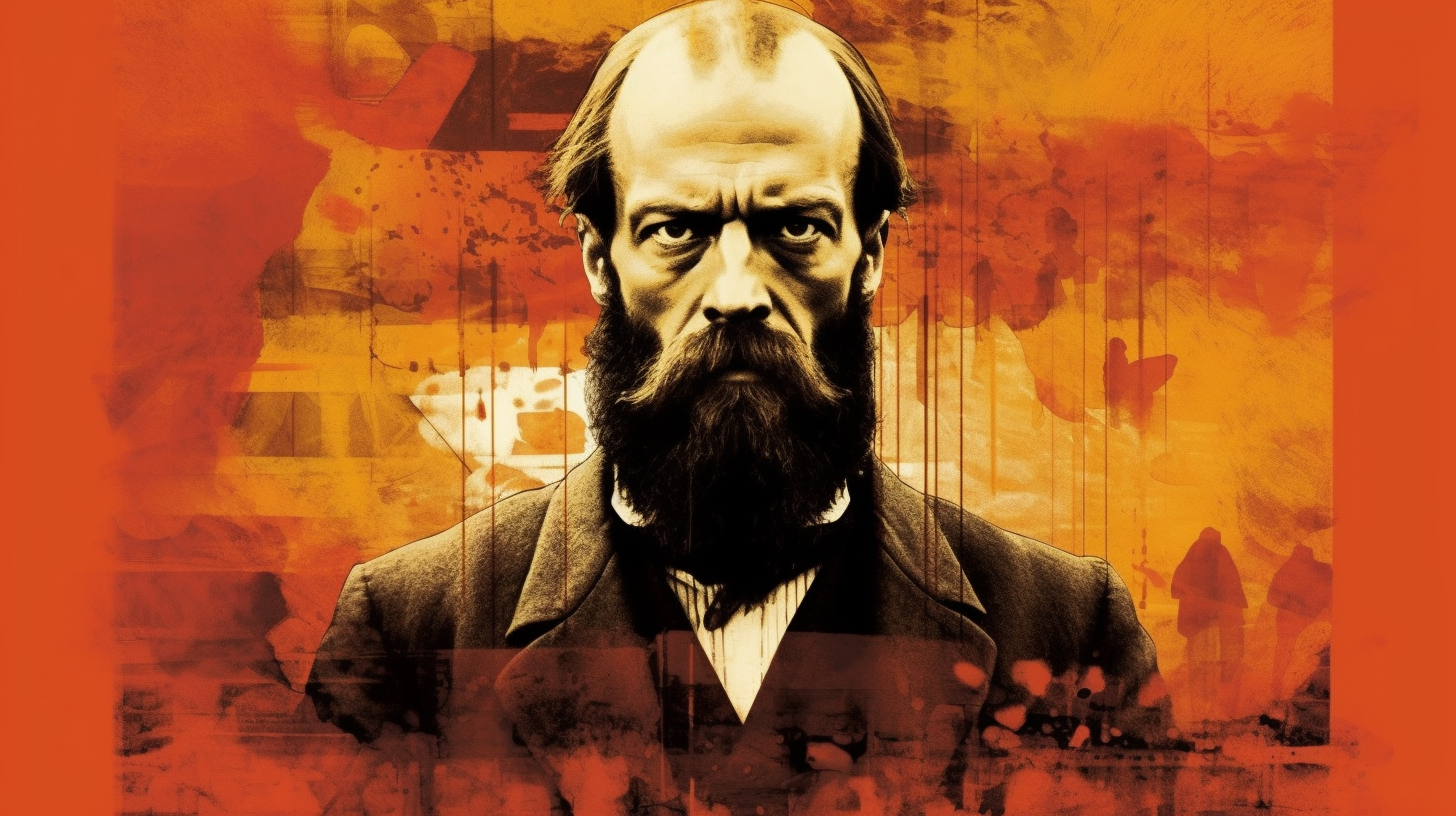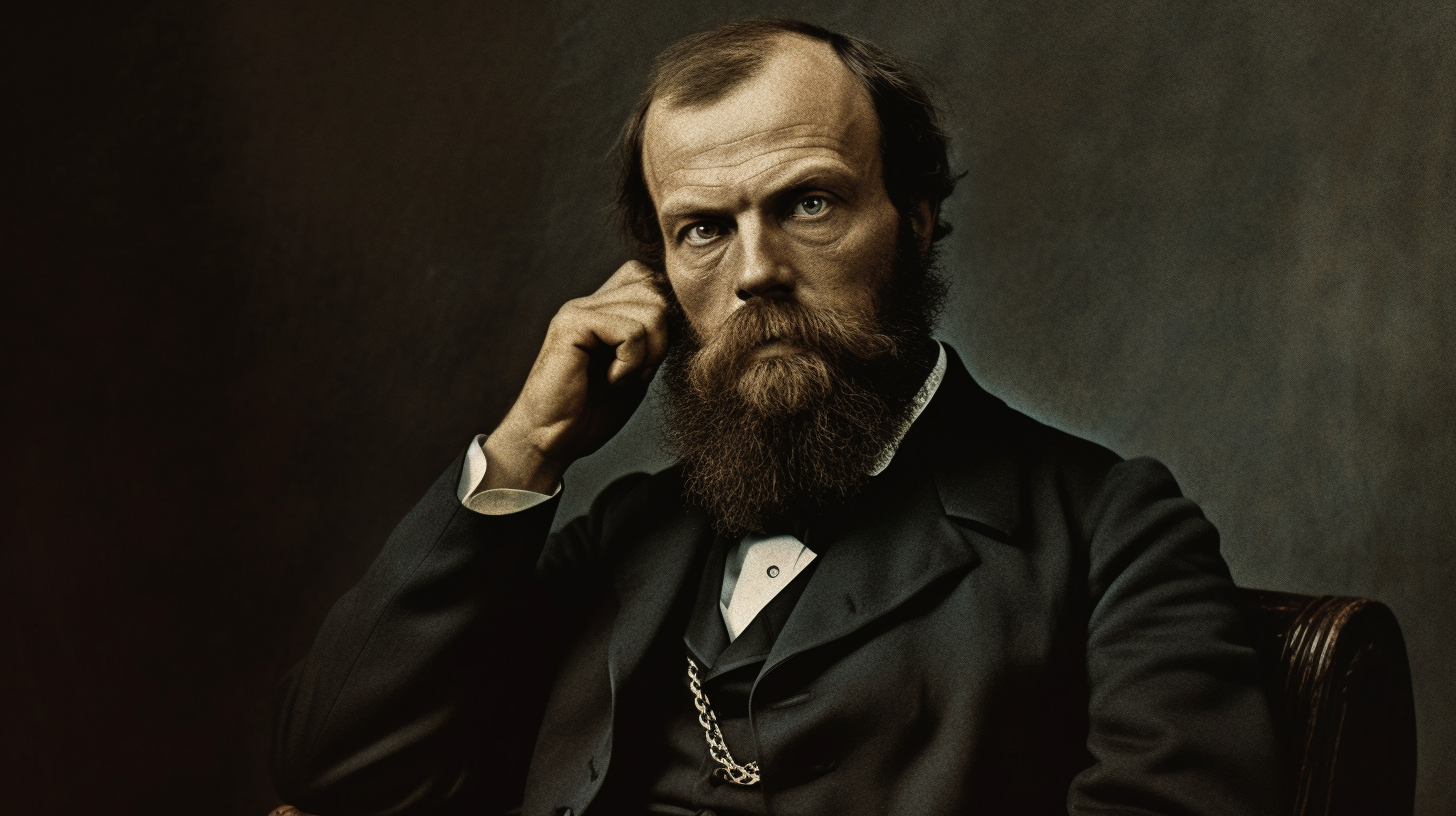The Existential Struggle in Dostoevsky's 'Crime and Punishment'

The Existential Struggle in Dostoevsky's Crime and Punishment
In Dostoevsky's seminal work, "Crime and Punishment," a profound exploration of the human psyche unfurls, rendering a tableau of existential struggle. Here, the maestro deftly moulds prose into a vessel that unravels the intricacies of moral turpitude and the complicated nature of guilt. Through the lens of the protagonist, Raskolnikov, a conflicted soul besieged by intellectual prowess, we are confronted with the vexing question of transcending societal boundaries, of delving into the forbidden depths to assert a divine right, thereby forsaking the established norms of morality.
Emblematic of the tortured mind, Raskolnikov bears the burden of his actions with a fragile stoicism, traversing the bustling thoroughfares of St. Petersburg in a solitary pilgrimage. His inner struggle manifests as a fierce clash between the rationales concocted to validate his transgression and the relics of a moral compass that refuses to be silenced. Dostoevsky adroitly peels back the layers of Raskolnikov's consciousness, exposing the profound existential quandary he grapples with, wherein the boundaries of right and wrong blur and intertwine.

This narrative odyssey reveals the paradox of human existence, the quest for meaning trapped within the web of guilt and redemption. Dostoevsky's prowess as a wordsmith breathes life into these existential inquiries, deftly painting the portrait of a fractured soul yearning for absolution and restoration. Through Raskolnikov's introspection, we find ourselves confronted with our existential dilemmas, contemplating the worth of a life constrained by societal mores and seeking solace in the possibility of redemption.
In the closing chapters of this literary masterpiece, Dostoevsky's strokes become bolder, and his thematic explorations are heightened. The profound weight of the narrative finds culmination in the protagonist's journey toward self-realization and atonement. Dostoevsky, the consummate craftsman, unveils the depths of the human condition, transcending time and cultural boundaries, inviting readers to confront the perennial questions within their souls.
Our take: Crime and Punishment stands as an enduring testament to the indomitable spirit of the human intellect and its ability to grapple with the complexities of morality and the quest for self-actualization. Dostoevsky's intricate portrayal of Raskolnikov's existential struggle serves as a clarion call for introspection and moral introspection. As readers, we are beckoned to examine the boundaries of our moral reasoning, confronting the precarious interplay between the pursuit of personal ideals and the communal fabric that binds us. In contemplating the vicissitudes of guilt, redemption, and the indomitable human spirit, we are presented with an opportunity for profound self-reflection and the possibility of embracing the Good (καλός). This virtue emerges from the ashes of transgression and resonates with the eternal quest for meaning.
Plato Re-Imagined
This course includes 32 lectures covering most of Plato's dialogues and allowing the student to return to something divine. Divinity should resonate with secular and religious leaders alike. I present a compatible approach in my lecture on Consilience.
Also included with this course is a free book. If you pay for the course, you will get a physical copy of the book for free, mailed to your chosen address — anywhere on the planet!
